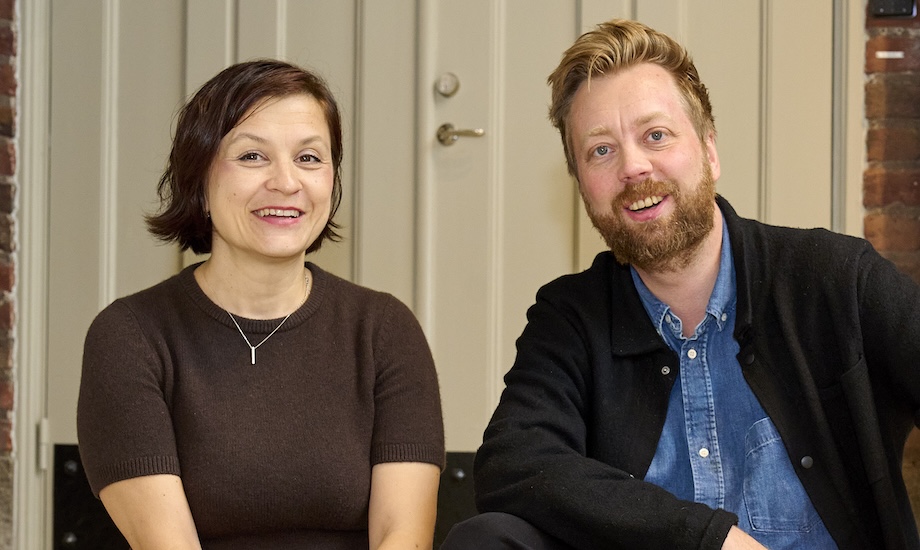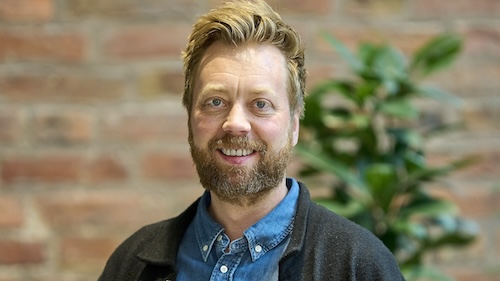New Principle Coordinator and Cluster Coordinator in Future Education at KTH

The programme management has appointed Olga Viberg as Cluster Coordinator for AI and Learning in Higher Education, and Marcus Lithander as Principle Coordinator for the framework principle 3: “Active student-centred learning”.
Following a decision by the President in June 2025, the Programme Manager has been given the Programme Owner’s mandate to appoint one or more Principle Coordinators and Cluster Coordinators for Future Education at KTH. Two coordinators have now been appointed, with more potentially to follow.
Both roles share the responsibility of coordinating and following up on projects linked to their respective clusters within the Future Education programme, as well as other relevant educational development initiatives at KTH.
Decision on programme management and organisation 2025-06-03
Olga Viberg – Cluster Coordinator for "AI and Learning in Higher Education"

Olga is an associate professor in media technology specialising in technology-supported learning with a focus on AI for learning, data-driven support for learning and teaching, and responsible AI integration in STEM education. Among other things, she is actively involved in Digital Future's education group for educational transformation and runs several relevant research projects.
Olga's Digital Futures profile
Why do you want to work with the Future Education programme?
– I see Future Education as a unique opportunity to contribute to a transformative shift in how we learn, teach, and develop skills at a time when artificial intelligence is reshaping society. My vision is for KTH to be an internationally leading institution in integrating AI into education – both as content and as a tool – in ways that improve learning conditions for students, support teachers, and strengthen society’s ability to meet future challenges.
To me, Future Education at KTH means creating a culture where learning is adaptive, inclusive, and lifelong. AI can provide tools to make teaching more personalised and effective, but also to enable entirely new forms of collaboration between humans and machines.
What are the immediate plans?
– The initial plans involve gathering ongoing initiatives related to AI and education, establishing a cluster for knowledge exchange, launching pilot projects in AI-supported learning, and developing a vision for the responsible use of AI in higher education at KTH. This spring, I will be leading a research focus period at Digital Futures on "Fostering Human Agency in AI-Mediated Education". But I can tell you more about that when I premiere the Fika Chat podcast on 22 October.
Marcus Lithander – Principle Coordinator for “Active student-centred learning” (P3)

Marcus has a PhD in applied cognitive psychology. He works as a researcher in Digital Learning at KTH Royal Institute of Technology. He develops courses and conducts research on student learning, metacognition, pedagogical misconceptions and critical thinking. Marcus is also the host of the podcast Fika Chat on the Future of Education .
Why do you want to work with the Future Education programme?
– My challenge is to translate research into actual behaviours. I want to work with Future Education because I see a great need to disseminate educational research in ways that are grounded in solid evidence about how people learn. We know a lot about how we should learn effectively, but we also know that we don’t always do what we should. My vision is an education system where students easily grasp how to learn in a sustainable way and are equipped with tools that lead to long-term learning.
What are the immediate plans?
– Initially, it’s about supporting the projects within Future Education. What obstacles are they facing that Future Education can help overcome? Knowledge is worthless if it isn’t used, which is why I want to contribute to the dissemination of all the valuable project outcomes and insights. Since I love well-crafted guides and manuals, I also hope to support projects that need help packaging their results – so we end up with clear tools that help teachers and students improve learning.
By: Sofie Kim
